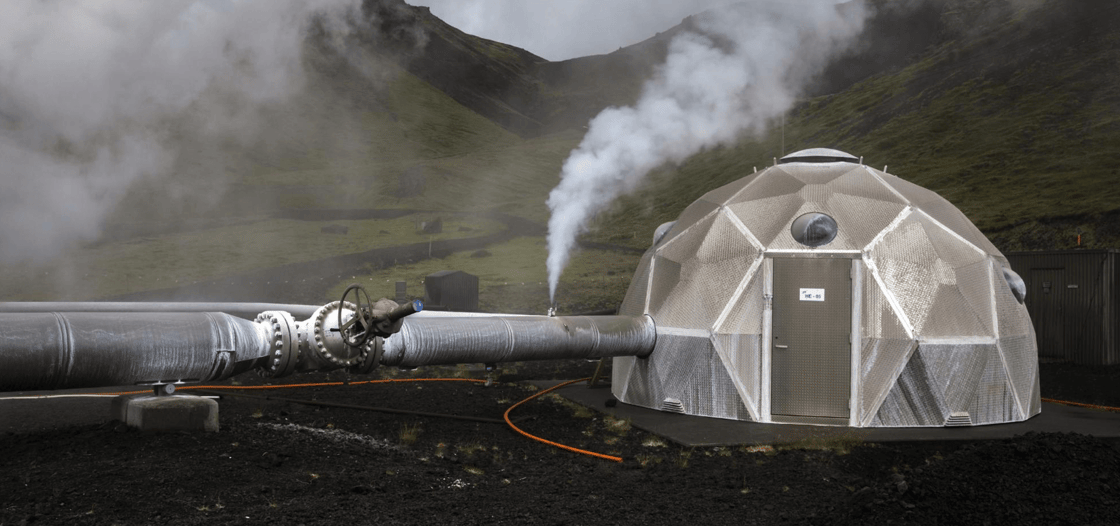
In a statement posted on its website this week, the U.S. Department of Energy (DOE) announced that it had released an “updated study” of U.S. liquefied natural gas (LNG) exports.
The DOE, which highlighted in the statement that it “has been given the responsibility by Congress under the Natural Gas Act to evaluate the public interest of proposed exports to countries with which the United States does not have a Free Trade Agreement”, said the study will have a 60-day comment period.
The DOE noted in the statement that the public is encouraged to submit comments. The organization outlined that these “will inform how DOE may apply the study’s findings to its public interest analysis of export applications going forward”, adding that “this is consistent with DOE’s past practice”.
“DOE leadership recognized the need for a comprehensive update to ensure the most comprehensive and up to date analysis possible of market, economic, national security, and environmental considerations of different potential volumes of U.S. LNG exports,” the DOE went on to note.
The organization said in the statement that the U.S. LNG export sector has experienced transformative and unprecedented growth in just a decade.
In a separate statement posted on the DOE website commenting on the study, U.S. Energy Secretary Jennifer M. Granholm said, “the Natural Gas Act has given the U.S. Secretary of Energy the responsibility to evaluate whether authorizations for the export of liquefied natural gas to non-free-trade-agreement countries is consistent with the ‘public interest’”.
“I want to take this opportunity to highlight five key findings and considerations that I think are especially relevant to help guide future Secretaries of Energy in making decisions about whether particular applications are in the public interest,” Granholm added, noting that the publication “reinforces that a business as usual approach is neither sustainable nor advisable”.
“First, the pace of growth of U.S. natural gas exports in recent years is truly astounding and many analysts say continued growth on this trajectory will quickly outpace global demand,” Granholm continued.
“U.S. LNG exports have already tripled over the past five years, will double again by 2030, and could double yet again under existing authorizations,” the energy secretary said.
“Second, while these dramatically increasing LNG exports generate wealth for the owners of export facilities and create jobs across the natural gas supply chain, our public interest review requires a comprehensive economic analysis. The U.S. Department of Energy’s updated study finds that a wide range of domestic consumers of natural gas … would face higher prices from increased exports,” Granholm went on to state.
Highlighting a third point, Granholm said “LNG facilities tend to be concentrated in communities that are being asked to shoulder the additional burden of pollution from increased natural gas production and liquefaction”.
“This comes on top of existing environmental burdens from refining, petrochemical, and other industries already concentrated near these communities,” Granholm added.
“Fourth, the climate impact of ever greater exports of LNG merits a close and rigorous focus, especially in a world that needs to quickly reduce greenhouse gas emissions substantially across the board to meet our global commitment of limiting warming to 1.5 C,” Granholm noted.
“Fifth, any sound and durable approach for considering additional authorizations should consider where those LNG exports are headed, and whether targeted guardrails may be utilized to protect the public interest,” Granholm continued.
A fact sheet posted on the White House website on January 26 highlighted that the Biden-Harris administration was announcing a temporary pause on pending decisions on exports of LNG to non-FTA countries “until the Department of Energy can update the underlying analyses for authorizations”.
Industry Response
In a statement posted on the American Petroleum Institute’s (API) website this week in response to the DOE’s study, API President and CEO Mike Sommers said, “it’s time to lift the pause on new LNG export permits and restore American energy leadership around the world”.
“After nearly a year of a politically motivated pause that has only weakened global energy security, it’s never been clearer that U.S. LNG is critical for meeting growing demand for affordable, reliable energy while supporting our allies overseas,” he added.
The API noted in its statement that “multiple independent studies have proven the net benefits of continued LNG exports for strengthening the economy, driving climate progress, and bolstering global energy security”.
In a statement sent to Rigzone by the American Exploration & Production Council (AXPC) team, AXPC CEO Anne Bradbury said, “there is strong bipartisan support for U.S. LNG exports because study after study shows that they strengthen the American economy, shore up global security, and advance collective emissions reductions goals – all while U.S. natural gas prices remain affordable and stable from an abundant domestic supply of natural gas”.
“U.S. LNG exports have been a cornerstone of global energy security, providing reliable supplies to allies and reducing emissions by replacing higher-carbon fuels abroad, and it is critical that any study or policy impacting this vital sector should reflect thorough analysis and active collaboration with all stakeholders,” Bradbury added.
“Further attempts by this administration to politicize or distort the impact of U.S. LNG exports should be met with skepticism,” Bradbury continued.
The AXPC CEO revealed in the statement that the AXPC is still reviewing the updated analysis and said the group will participate in the upcoming comment period.
In a separate statement sent to Rigzone by the National Ocean Industries Association (NOIA) team, NOIA President Erik Milito said, “outdated arguments against LNG no longer align with today’s energy reality”.
“U.S. energy performance has repeatedly proven critics wrong on the global stage. The administration is recycling the same old, tired political talking points from a decade ago, which have been shown to be completely inaccurate,” he added.
“U.S. households currently enjoy some of the world’s most competitive residential natural gas prices. Remarkably, even as U.S. LNG exports hit record levels in 2023, domestic prices saw a significant 62 percent reduction,” he continued.
“U.S. LNG has become indispensable to global energy security, particularly in Europe, yet billions are still spent on Russian LNG imports. This financial flow could instead bolster American jobs, stimulate our economy, and fortify energy security for our allies,” he said.
“Lifting the permitting pause is crucial to halt this dependency and ensure affordable, stable energy supplies around the globe,” Milito went on to state.
The NOIA President also noted that “ending the pause would mark a significant step towards reducing emissions”.
“Carnegie Mellon University research indicates that converting all U.S. coal plants to natural gas could substantially decrease sulfur dioxide and nitrogen oxide emissions, potentially saving $20–50 billion in healthcare costs annually due to improved air quality. By exporting LNG, we can extend these environmental benefits globally, aiding in the shift away from coal to cleaner energy alternatives,” he added.
Milito also said the pause on LNG export permits” threatens tens of thousands of jobs along the Gulf Coast, billions in wages, and vital energy infrastructure investments” and stated that, “by ending the LNG permitting pause, we can secure affordable energy for U.S. families, affirm our position as a global energy leader, and drive forward emissions reduction efforts”.
In another statement sent to Rigzone by American Energy Alliance (AEA) President Thomas Pyle, Pyle said the latest analysis of LNG exports “fundamentally misrepresents the economic and environmental benefits of America’s global leadership in energy production”.
“The study epitomizes four years of misguided energy policy that has consistently undermined American energy independence,” he added.
“The report is one more in a long list of actions the Biden-Harris administration has taken to suppress American energy dominance,” Pyle continued.
“On election day, the American people rejected these kinds of artificial limits on America’s energy export potential,” Pyle went on to state.
Rigzone contacted the DOE and White House for comment on the API, AXPC, NOIA, and AEA statements. At the time of writing, the DOE and White House have not yet responded to Rigzone’s request for comment.
Rigzone also contacted the API, AXPC, NOIA, and AEA for comment on Granholm’s statement. The API, AXPC, and NOIA directed Rigzone to their statements mentioned above. The AEA’s partner organization, the Institute for Energy Research (IER), told Rigzone, “after taking more than 250 actions that make it harder to produce oil and gas in the United States, it’s hard to believe that Secretary Granholm and the Biden administration now care about the price of natural gas”.
“If they truly cared, they would not have been so hostile to new natural gas development and exportation in and from the United States,” the IER added.
Rigzone has contacted the DOE and White House for comment on the IER statement. At the time of writing, neither have responded to Rigzone’s request yet.
To contact the author, email











